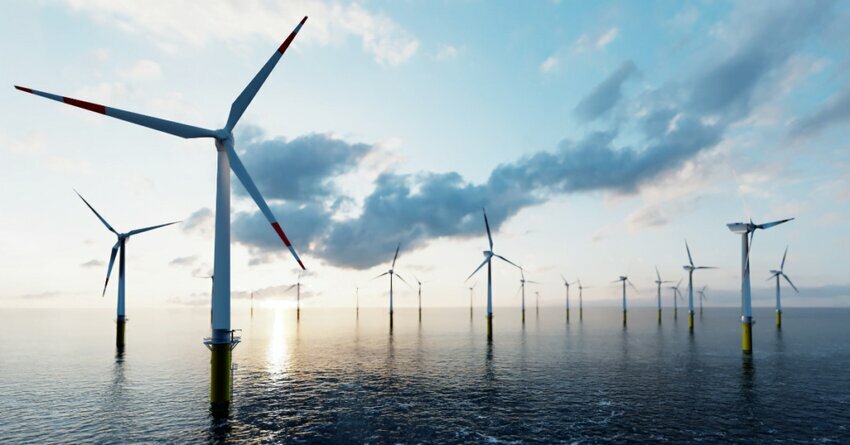 (Credit: Canva Pro)
(Credit: Canva Pro)The European Commission has approved, under EU State aid rules, a $2.23 billion French measure to support offshore wind electricity production in France. The measure will contribute to achieving France’s energy and environmental targets, as well as the objectives relating to the EU’s Offshore Renewable Energy Strategy and the European Green Deal.
France notified the Commission of its intention to support the construction and operation of a floating offshore wind farm in the sea off the coast of the South of Brittany. The aid measure, which will run for a period of 20 years starting with the operation of the wind farm in 2028, will have a total maximum budget of $2.23 billion.
Until now in France, only small pilot projects have been developed. The floating offshore wind farm supported by the measure will be the first commercial project of this kind in the country. It is expected to have a capacity of 230 to 270 MW, and to generate 1 TWh of renewable electricity per year for a period of 35 years.
The aid will be granted in the form of a monthly premium under the model of a two-way Contract for Difference. The variable premium will be calculated by comparing a reference price, determined in the tender offer of the beneficiary, and the market price for electricity. When the market price is below the reference price, the beneficiary will be entitled to receive payments equal to the difference between the two prices. However, when the market price is above the reference price, the beneficiary will have to pay the difference between the two prices to the French authorities.
The measure will help France meet its target of producing 33% of its energy needs from renewable sources by 2030. The scheme is expected to lead to the reduction of greenhouse gas emissions by 430 tonnes of carbon dioxide per year.
The Commission found that the measure has a limited impact on competition and trade within the EU. In particular, it is necessary to promote the production of renewable electricity. In addition, the level of the aid corresponds to the effective financing needs, and necessary safeguards limiting the aid to the minimum will be in place, including a competitive bidding process for awarding the aid. The Commission says that the measure also brings about positive effects, in particular environmental ones, that outweigh any possible negative effects in terms of distortions to competition and trade in the EU.